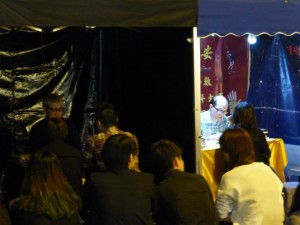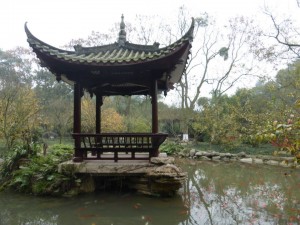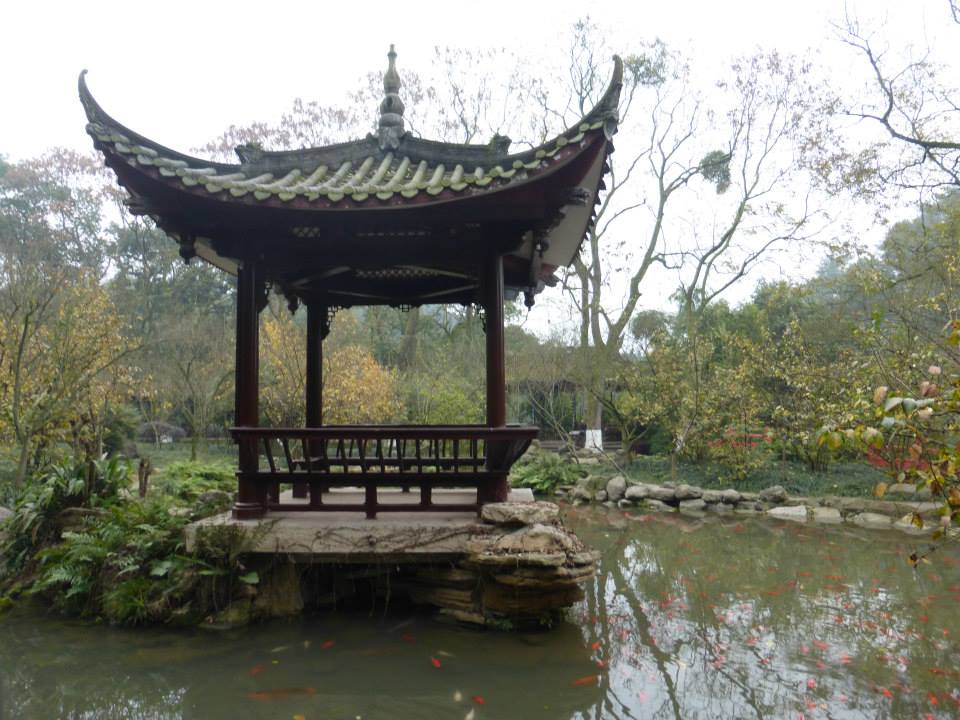
“You have lucky face. You be rich, after your three children. Good heart. Your husband is lucky man.” As Chris stood smirking to the side, the fortune teller at the Temple Street Night Market in Hong Kong continued to tell me how I was a woman who knew what she wanted and was very determined with my “tiger eyes.” After paying the 50 RMB (about 8 USD, which was a higher price than the other fortune tellers we stumbled upon later at about 30 RMB), we both walked away laughing in good nature.
I had just received my first fortune face reading, and the fortune teller, a middle-aged Chinese lady dressed in a traditional qipao that could bargain down a beggar, had used a form of feng shui to deliver a fortune spot on (determined) in some instances and completely off (there will be no three children) in others.
What is feng shui?
Literally translated. feng shui in English means “wind” and “water.” As all traditions in China, feng shui has a foundation in the three main religions of Buddhism, Confucianism and Taoism. A belief system that adheres to elemental conditions affecting fate from birth, feng shui is about the energies in the universe that shape our fortunes.
Dating back to 4,000 BC, feng shui was considered a metaphysical science that aligned a human’s life with celestial bodies. Using astronomy as a guide, the Chinese structured homes and buildings based on the alignment of the stars to bring about the best use of qi, or life force, and the yin and yang, or polarity of forces. The Four Celestial Animals, or the cardinal directions provided by the star constellations, in historic times that guided feng shui were:
1. The Green Dragon of East that brought the Spring Equinox
2. The Red Phoenix of South that brought the Summer Solstice
3. The White Tiger of West that brought the Autumn Equinox
4. The Dark Turtle of North that brought the Winter Solstice
In more contemporary times, feng shui fell out of favor during the Cultural Revolution when it was classified as part of the Four Olds and banned in the mainland. Since the death of Mao Zedong, feng shui has grown once again in popularity, but it is still taboo in Chinese government to consult with feng shui experts. Today, feng shui is mainly seen as an interior decorating concept for more harmonious surroundings. This singular view, though, misses the complexities of the belief system.
What a feng shui face reading can tell you
On a particularly cool evening last fall, Chris and I attended a talk about feng shui face readings hosted by Janny Chyn of Shanghai Pathways. A feng shui master delivered a speech that was translated by Chyn on the many ideas behind what the structure of the face told about a person. Like the fortune I received, some of the beliefs were very plausible while others made little sense. In feng shui, as the environment and energies shape your fortune, the attributes of the following 10 body parts are used to predict your future.
1. Ears
The shape of the ears can tell a feng shui fortune teller how you were born. If the ear shape is that of swaddled baby, you spent most of your time in the womb upside down. If the outside of the ear is thick, you are healthy, smart and practice good nutrition.
2. Forehead
The wider the forehead, the more creative the individual. Wider foreheads allow for more energy flow.
3. Eyebrows
The thicker the eyebrows and more set together, the better the personal relationships the person enjoys. The wider apart the eyebrows, the bigger the heart of the person. Narrow eyebrows depict a picky person.
4. Eyes
Small eyes are signs of an introverted person whereas bigger eyes show more of an extrovert. When the eyes are watery or look to be laughing, this is a sign of love. Dark circles under the eyes of a woman are a sign of a female-nature disease. Eye contact in China is also important as direct eye contact leads to trust and non-direct eye contact signals a lack of honesty.
5. Cheeks
If a woman has high cheekbones, it is believed she likes to be in control. If the cheeks are discolored to a pale or darkish tint, there is a problem with the lungs and money mismanagement is common in the person.
6. Chin
The sharper the chin of an individual, the more likely he is to make bad decisions.
7. Mouth
A mouth turned more upward shows agreement where a mouth turned more downward is in disagreement. A thicker lower lip depicts a person who treasures friendships while a thin upper lip shows the person to be a good debater. A mouth not centered depicts an untrustworthy person.
8. Nose
A selfish person is said to have a long nose where a more agreeable person usually has a round nose. The bigger the nose, the more stubborn the person is believed to be.
9. Hair
Thick hair is a sign of a strong person who likes to direct. Thin-haired people tend to be more considerate. The shinier the hair, the more the person is believed to be in love. Red hair is a sign of happiness.

10. Face
A square face belongs to a serious person whereas a more round face thinks a lot and makes good decisions.
What does your face say about you?
According to feng shui, I’m a good person who makes good decisions and thinks a lot. What would your face structure tell a fortune teller?
-Monica

